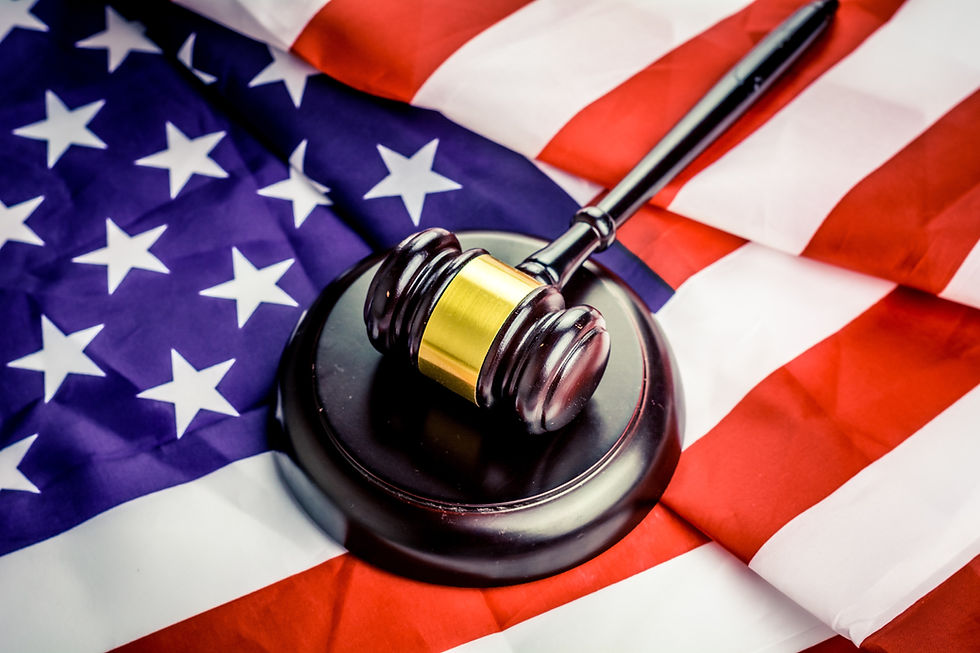Federal Appeals Court Reinstates Trump’s Sweeping Tariffs After Lower Court Block
- The New York Editorial Desk - Arif

- May 29, 2025
- 3 min read
Tone & Political Bias: Center-Leaning
Why: The report presents a legal and economic development without ideological framing. It highlights actions from both the judiciary and Trump administration factually.

Appeals Court Halts Lower Court Ruling
A federal appeals court has temporarily reinstated most of President Donald Trump’s recently announced tariffs, reversing a lower court decision that had blocked their immediate implementation.
The U.S. Court of Appeals for the Federal Circuit issued the order Thursday, a day after the U.S. Court of International Trade ruled that Trump exceeded his legal authority in imposing the tariffs.
The appeals court provided no explanation for its decision but set deadlines for the involved parties to respond—June 5 for plaintiffs and June 9 for the administration.
Background on “Liberation Day” Tariffs
The tariffs in question are part of Trump’s “Liberation Day” trade initiative, a broad effort aimed at reshaping U.S. trade policy. The duties affect a wide range of imports from key trading partners, including Canada, Mexico, China, and the European Union.
These tariffs include:
“Reciprocal” tariffs of at least 10% on goods from most U.S. trading partners
Specific 25% tariffs targeting Canada, Mexico, and China over allegations related to fentanyl trafficking into the U.S.
Wednesday’s lower court ruling threatened to delay or derail this plan. That ruling had immediate effect and blocked the tariffs, stating that Trump had overstepped his authority under existing trade laws.
Administration Response
Trump administration officials quickly indicated they were undeterred by the trade court’s decision. They expressed confidence that they would prevail on appeal or find alternative legal mechanisms to enforce the tariffs.
The White House also downplayed the impact of the trade court’s decision on international negotiations, emphasizing that discussions with Japan and India would proceed as scheduled.
A fourth round of U.S.–Japan trade talks is scheduled for Friday in Washington.
An Indian trade delegation is due to arrive in the U.S. next week for further talks.
Ongoing Legal Challenges
While the Federal Circuit’s order reinstates most of the tariffs for now, legal uncertainty remains. On the same day, a different federal court issued a narrower ruling against Trump’s use of the International Emergency Economic Powers Act (IEEPA) to impose the tariffs.
That case involved a toy manufacturer and found Trump’s use of the IEEPA to justify the reciprocal tariffs and fentanyl-related levies unlawful. However, the relief granted was limited to the company that filed the lawsuit.
Legal analysts suggest that the future of the tariffs remains unclear, as multiple cases could shape how much authority the executive branch has over trade policy.
Market Reaction
Financial markets responded with cautious optimism following the trade court’s initial ruling on Wednesday. However, gains were limited by expectations of a lengthy appeals process and broader legal uncertainty.
Since the launch of Trump’s tariff regime, U.S. businesses have reportedly incurred more than $34 billion in added costs and lost sales, according to a Reuters analysis.
Market watchers note that the back-and-forth in the courts has only added to the volatility surrounding U.S. trade policy. The possibility of further legal reversals or executive actions keeps many companies in a holding pattern regarding supply chain and pricing strategies.
Key Dates Ahead
June 5: Plaintiffs must respond to the appeals court’s reinstatement order.
June 9: The Trump administration's deadline to reply.
May 31 (Friday): U.S.–Japan trade talks resume in Washington.
Early June: Indian trade delegation scheduled to visit the U.S.
The appeals process and any further executive decisions will shape the next phase of the Trump-era trade agenda.



Comments